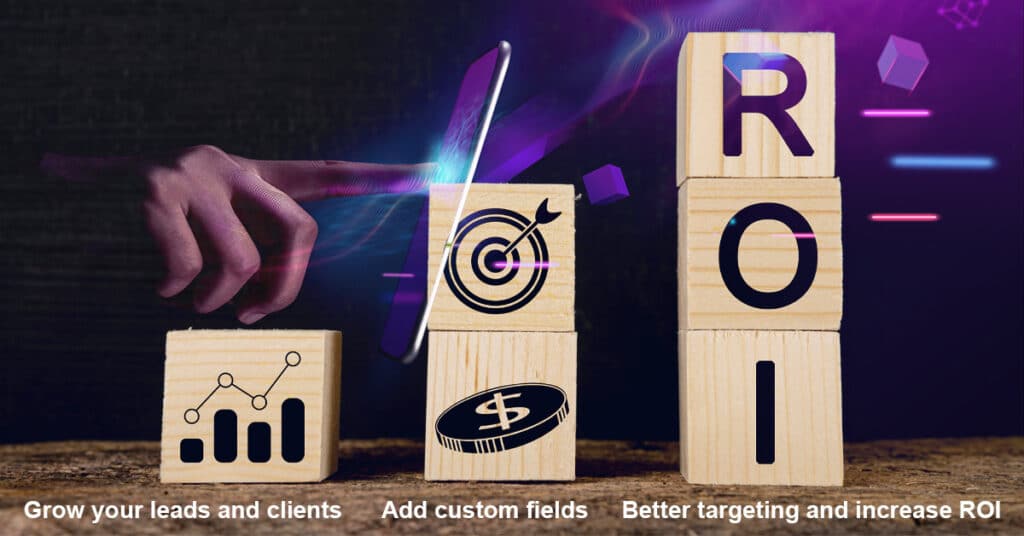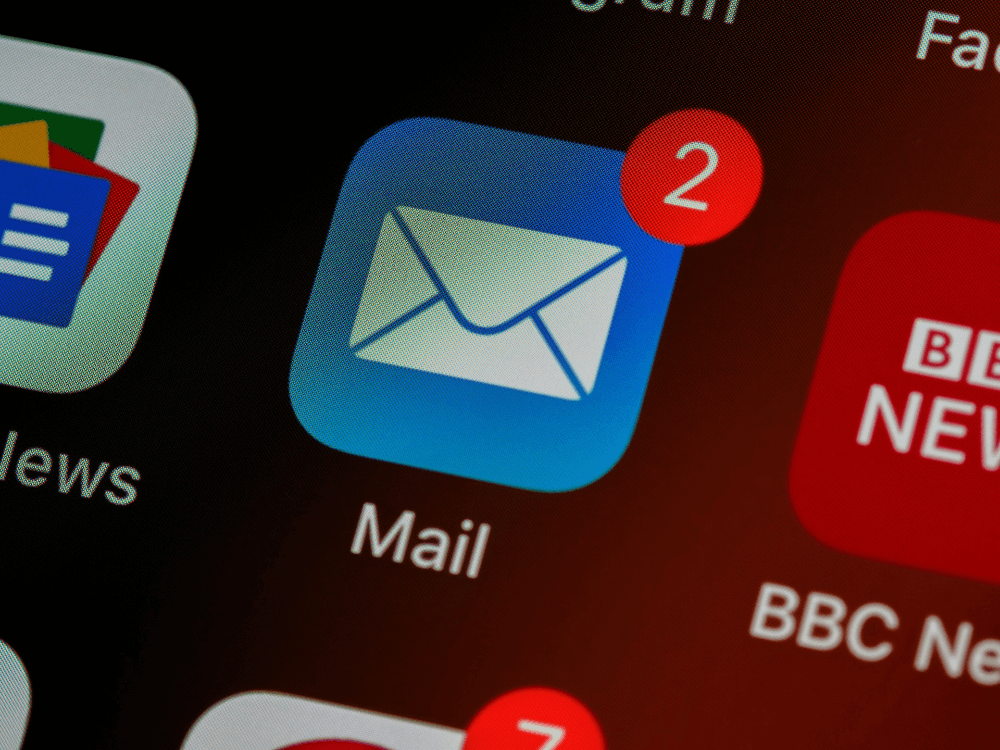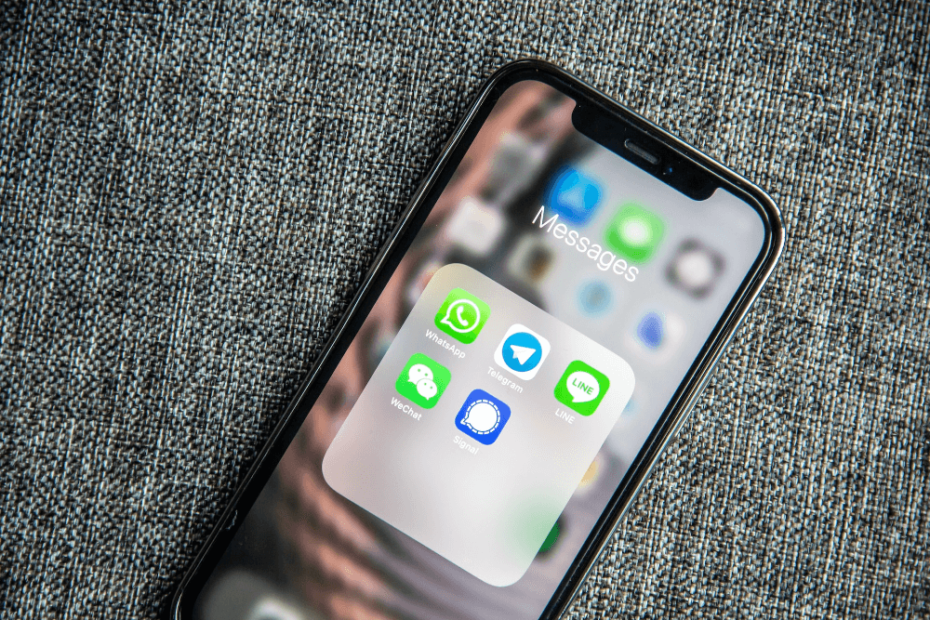📑 Table of Contents
- SMS Marketing Overview
- The Concept of SMS Marketing
- Quick Steps to Start SMS Marketing
- Is SMS Marketing Effective?
- Why is SMS Marketing Relevant?
- The Purpose of SMS Marketing
- How Businesses Use SMS Marketing
- Is It Legal?
- Benefits of SMS Marketing
- The Future of SMS Marketing
- 6 Fundamentals of Successful SMS Marketing
- 6 Best Practices of SMS Marketing
- Advantages of SMS Marketing
Ready to dive into a in-depth analysis of SMS Marketing? In this article, we will provide a great analysis why Text Message (or SMS) Marketing is a must have channel for any business these day.
Let’s start and please share your feedback!
In an era where digital marketing serves as one of the primary tools for businesses to engage with their audience, arises the incredibly effective yet often overlooked method of SMS marketing. This approach harnesses the power of text messaging, a tool so inherent in our daily lives, making it a delightful dais for businesses to drive deeper connections with their audiences. While each marketing method has its unique benefits, SMS marketing stands out for its unparalleled reach, engagement rate, and accessibility.
This blog post is a comprehensive guide to understanding the sphere of SMS marketing, providing a deep dive into its genesis, its importance in the current digital marketing scape, and its fundamentals.
SMS Marketing Overview
SMS marketing—short for Short Message Service marketing—is a technique that uses permission-based text messaging to distribute promotional content. This could be in the form of alerts, product updates, discounts, or any related information that a business wishes to share with its customers. SMS marketing requires customers to opt-in, usually through a short code trigger, to receive these promotional messages.
In the sphere of mobile marketing, it has grown to become a key cog, providing businesses of all scales with a direct line of communication with their potential customers.
The Concept of SMS Marketing
SMS marketing is a promotion-centric strategy that leverages permission-oriented text messaging. It provides businesses with the means to dispatch texts that carry promotional content—urgent deals, updates about products, and significant alerts—straight to the mobile devices of their customers. For various types of businesses, regardless of their size, it proves to be an intimate, straightforward, and cost-efficient communication method.
Quick Steps to Start SMS Marketing
- Find a Reliable Provider: Begin your journey by selecting a reputable SMS marketing provider. This partner should offer reliable delivery, detailed analytics, and good customer support.
- Choose Your Number: Depending on your target audience and campaign nature, choose between a short code, 10DLC, TNF, or long code. This becomes your unique identifier in the SMS world.
- Reserve SMS Keywords: Keywords are trigger words that customers can send to your number to receive specific responses or promotions. For instance, texting “DISCOUNT” might get them a special deal.
- Promote Your Campaign: This is where the marketing magic happens. Use your other channels – be it social media, email, or physical advertising – to promote your SMS keyword and encourage sign-ups.
- List Building: Your SMS list is gold. Import existing contacts, pay attention to SMS sign-ups, and always ensure you have permission to text them.
- Craft and Send Campaigns: With your list ready, design impactful campaigns. Monitor the ROI, adjust based on feedback, and continue engaging your audience.

Is SMS Marketing Effective?
Yes, SMS marketing is notably effective, and here’s why:
- High Open Rates: SMS messages have an astounding open rate. It’s estimated that about 98% of all SMS messages are opened, and 90% of those are read within the first 3 minutes. When compared to email marketing, which has an average open rate of 20%-30%, the effectiveness of SMS becomes apparent.
- Direct & Immediate: SMS messages land directly in the recipient’s inbox without any filters. The immediacy of text messages means businesses can send time-sensitive offers or information, and recipients are likely to see them almost instantly.
- Personal Touch: Given the intimate nature of mobile phones, SMS messages often feel more personal to recipients. This can foster a stronger connection between brands and their audience.
- Short and to the Point: The character limit on SMS messages (typically 160 characters) ensures that the content is concise. Customers appreciate straightforward and direct information.
- High Engagement Rates: Not only do recipients open SMS messages, but they also engage with them at a higher rate compared to other marketing channels. With the right call-to-action, businesses can see significant responses from their audience.
- Broad Reach: With billions of mobile phone users globally, SMS marketing allows businesses to tap into a vast audience. Plus, it doesn’t require the recipient to have an internet connection, which can be beneficial for reaching audiences in areas with less robust internet infrastructure.
- Cost-Effective: Sending SMS messages can be relatively inexpensive, especially when considering the return on investment. For many businesses, the conversion rates from SMS campaigns justify the costs.
However, it’s worth noting that while SMS marketing is effective, its success depends on various factors:
- Consent is Key: SMS marketing campaigns should always be permission-based. Unsolicited messages can annoy recipients and violate regulations.
- Relevance: The content must be relevant to the audience. Irrelevant messages can lead to higher opt-out rates.
- Frequency: Overloading recipients with too many messages can be counterproductive. It’s essential to strike a balance to avoid annoying your audience.
Why is SMS Marketing Relevant?
In the increasingly digitized age we live in, immediate access to information is crucial, and this extends to marketing as well. SMS marketing leverages this by offering a platform that connects businesses with customers in virtually real-time.
More and more customers are embracing a mobile-first approach, and as such, being able to read and respond to marketing on the go is highly sought after. SMS marketing capitalizes on this trend to provide instant, effective marketing communication.

The Purpose of SMS Marketing
The goal of SMS marketing is threefold: to enhance customer engagement, boost sales, and foster customer loyalty. Text messaging becomes a platform for businesses to share timely, relevant content to their customers thus fostering in them a sense of inclusivity.
These messages can range from promotional offers, discounts, reminders, or even personalized birthday wishes—all of which, when employed correctly, can create a more personal bond between the customer and the business, helping drive brand loyalty and sales.
How Businesses Use SMS Marketing
SMS marketing can be used in several ways in a business’s overall marketing strategy. For instance, a retail store might send text messages to customers about a weekend sale or new product arrivals. A restaurant could text its customers about daily specials or reservation confirmations.
During times of crisis—like the COVID-19 pandemic—businesses even use SMS marketing to share crucial information with their customers about changing business hours, or health and safety protocols. These campaigns are designed to keep customers engaged, informed, and loyal to the brand.
Is It Legal?
Yes, SMS marketing is legal, but it comes with specific regulations and guidelines that businesses must adhere to. The legality of SMS marketing is primarily centered on obtaining explicit consent from recipients and providing them with a clear way to opt out. Here’s a breakdown:
- Consent is Essential: Before sending promotional SMS messages, businesses must obtain explicit, written consent from the individual. This means that the recipient should actively opt-in to receive messages, usually through a sign-up process.
- Opt-Out Mechanism: Every promotional SMS should provide recipients with an easy and clear method to opt out of future messages, usually by replying with a specific keyword like “STOP.”
- Transparent Messaging: The content of the SMS should be clear, and the sender must identify themselves, so recipients know who the message is from.
- Regulatory Compliance: Many countries have specific regulations governing SMS marketing. For instance:
- In the U.S., the Telephone Consumer Protection Act (TCPA) and the Controlling the Assault of Non-Solicited Pornography And Marketing (CAN-SPAM) Act set rules for commercial text messages.
- In the EU, the General Data Protection Regulation (GDPR) has guidelines on personal data, including SMS marketing.
- Avoiding Spam: Messages should be relevant to the recipient and not be sent excessively, which could be viewed as spam.
- No Misleading Information: The content of the message should not be misleading or false. This applies to both the content and any links or phone numbers included in the SMS.
Benefits of SMS Marketing
The appeal of SMS marketing largely lies in its open rates. Studies suggest that SMS has an open rate as high as 98%, and 90% of these messages are read within the first three minutes—figures that far surpass those related to email marketing.
Furthermore, unlike emails that may often get lost in spam folders or unsolicited advertisements that get blocked by ad-blockers, SMS messages generally avoid these obstacles, leading to better visibility for the marketing content. The minimalistic nature of the 160-character limit forces businesses to be concise and focused, often resulting in strong, impactful messaging.
In terms of cost, SMS marketing is relatively inexpensive compared to other forms of marketing, while also providing high and measurable ROI, making it a top choice for businesses, particularly those with smaller budgets like startups and SMEs.
The Future of SMS Marketing
SMS marketing is far from reaching the end of its journey. Quite the contrary—with the rise of technologies like AI and machine learning, its potential is only poised to grow. Advanced algorithms can help design highly targeted SMS marketing campaigns based on user data and behavior. This customization and personalization at scale may prove invaluable in forging strong, enduring connections between businesses and their customers.
SMS marketing, in essence, provides a highly effective, cost-efficient, and continuously evolving method for engaging customers and propelling business success. It’s a tactic that is designed around the needs and behaviors of modern digital consumers and seems poised to sustain its crucial role in businesses’ digital marketing toolboxes for the foreseeable future.

6 Fundamentals of Successful SMS Marketing
Craft content that’s succinct yet valuable, ensuring each message serves a clear purpose. Furthermore, tailor interactions to resonate with individual recipients, fostering a sense of connection and relevance. By adhering to these principles, businesses can engage their audience effectively and ethically.
1. Gaining Consent
Before businesses can begin sending marketing messages, they first need to get consent from consumers. It’s not only a good business practice but also a legal requirement in many regions. Customers typically give consent by opting into an automated system by sending an initial text message. The business then responds with disclosures and terms and conditions, as well as instructions on how to opt-out. It’s imperative always to offer an opt-out option in every SMS marketing message to remain compliant with regulations.
2. Effectively Timing Your Messages
The timing of your messages can significantly affect your campaign’s success. You don’t want to send messages in the middle of the night or too early in the morning. Generally, the optimal time for businesses to send SMS marketing messages is during typical business hours. However, businesses could also survey their customers to find the best hours to reach them.
3. Creating Impactful Content
When it comes to SMS marketing, content is king. To be successful, content needs to serve a purpose. It should either inform, promote, or provide valuable information to the customer.
Messages should be short, clear, and concise. Since text messages are limited to 160 characters, every word matters. It’s also crucial to include a clear call-to-action (CTA) in each message to direct customers on what they should do next.
4. Frequency of Messages
Striking the right balance in the frequency of your messages is crucial. Too many messages could annoy customers and prompt them to opt out of your SMS marketing services. On the other hand, if messages are too infrequent, customers might forget about your business. Based on industry best practices, it’s recommended that businesses should send between 2-6 marketing messages per month.
5. Staying Compliant With Regulations
It’s essential for any business using SMS marketing to understand and comply with all relevant laws and regulations. Violating such regulations can be costly and damage a business’s reputation.
Evidence of consent, privacy policies, and opt-out procedures must all be carefully managed and documented. The Telephone Consumer Protection Act (TCPA) and the CAN-SPAM Act are two significant regulations that SMS marketers need to be aware of.
6. Crafting an Impactful SMS Campaign
Creating an impactful SMS campaign involves developing content that speaks directly to the heart of your customers’ needs and desires. Acquiring a deep understanding of your customers and strategically timing your communication is crucial for success.

6 Best Practices of SMS Marketing
When delving into the realm of SMS marketing, it’s crucial to recognize and integrate certain pivotal points. These points, which act as the bedrock of a successful campaign, shape how recipients perceive and interact with your messages.
Addressing each of these fundamental elements not only enhances the effectiveness of your campaigns but also ensures that your audience feels valued and understood. Whether you’re crafting an offer or disseminating information, always keep the following key points in consideration.
1. Getting Consent for SMS Marketing
The cornerstone of SMS marketing is customer consent. The Telephone Consumer Protection Act (TCPA) mandates businesses to obtain explicit written consent from customers before sending promotional text messages. Therefore, before initiating an SMS marketing campaign, it’s crucial for businesses to have an opt-in system in place.
This might involve having customers tick a checkbox indicating they agree to receive marketing messages or prompting them to send a keyword to a shortcode to subscribe manually. For example, a business might ask customers to text “YES” to 12345 to begin receiving promotional messages.
2. Crafting Effective SMS Marketing Messages
The success of an SMS marketing campaign often hinges on the quality of the messages. Given the 160-character limit of SMS, messages need to be concise, clear, and compelling. They should clearly state the offer, its value, and how to redeem it.
For instance, a message like “Get 20% off your next purchase at XYZ Store. Use code TEXT20 at checkout. Valid until 12/31” makes the offer and its value clear and provides a straightforward call to action.

3. Timing Matters in SMS Marketing
When it comes to SMS marketing, timing can be just as important as the message itself. Businesses should aim to send messages at times when customers are most likely to take immediate action. For example, a pizza place might find sending out promotions mid-afternoon, as people are starting to think about dinner options, to be more effective than sending them out early morning.
4. Using SMS Marketing to Enhance Customer Engagement
SMS marketing is not just a tool for promoting special offers or new products. It’s an excellent tool for strengthening customer engagement. Businesses can use SMS to send out personalized birthday greetings, reminders for abandoned shopping carts, or invitations to special loyalty-member events. When executed correctly, these can significantly increase brand loyalty and customer lifetime value.
5. Avoiding Common SMS Marketing Pitfalls
Successful SMS marketing also revolves around avoiding common pitfalls. Flooding customers with messages can be detrimental and might lead to opt-outs. It’s recommended to keep frequency to a couple of messages per week maximum.
Furthermore, messages must offer real value – if customers feel they’re being spammed with insignificant discounts or non-relevant promotions, they’re likely to unsubscribe.
Therefore, enterprises should focus on targeting their SMS marketing efforts wisely, delivering relevant and valuable content to each segment of their audience.
6. Measuring SMS Marketing Success
Lastly, as with any marketing campaign, businesses need to measure their SMS marketing success. This involves tracking important metrics such as delivery rates, open rates, and conversion rates.
Knowing these ratios allows businesses to gauge the effectiveness of their SMS campaigns, understand what’s working and what’s not, and make data-driven decisions for future campaigns.
Advantages of SMS Marketing
SMS marketing stands out as a powerful tool in the digital age, offering businesses unparalleled reach and engagement. Its strengths lie in its direct approach, boasting near-immediate delivery and impressive open rates. Some common advantages are as below:
- High Open Rates: SMS boasts an almost 98% open rate, ensuring your message gets seen.
- Immediate Delivery: Texts are delivered instantly, making it ideal for time-sensitive promotions or information.
- Cost-Effective: SMS campaigns can be relatively inexpensive, especially when considering the potential return on investment.
- Broad Reach: With billions of mobile users globally, SMS offers a vast audience potential without requiring internet connectivity.
- Direct Engagement: SMS marketing provides a direct line to the consumer, bypassing clutter and achieving more focused engagement.
- Personalized Communication: With the right data, messages can be tailored to individual recipients, increasing relevance and response rates.
- Simple and Concise: The character limit ensures messages are short, making them more likely to be read in their entirety.
- Versatility: SMS can be used for a variety of purposes, from promotions to reminders to polls, catering to diverse business needs.
- Easy Opt-In and Opt-Out: With shortcode replies, customers can easily join or leave a campaign, giving them control and building trust.
- Strong Conversion Rates: Due to its direct nature and high open rates, SMS often leads to higher conversion rates compared to other marketing channels.
- Integrated Marketing Strategy: SMS can complement and amplify other marketing channels, creating a multi-faceted approach.

Final Thoughts!
The world of SMS marketing is rapidly evolving, becoming a quintessential part of contemporary digital marketing strategies. Its efficacy lies in its simplicity, accessibility, and directness, offering an incredibly personalized touch-point for businesses.
Whether one is a small business owner on the threshold of incorporating SMS campaigns or a seasoned marketer wishing to optimize current strategies, understanding and implementing these insights are crucial.
With the right use of timing, content, frequency, compliance, and in-depth analysis, your business can leverage SMS marketing to create sustained engagement, foster loyal consumer relationships, and ultimately drive business growth.
Remember, the key is in consistently learning, evolving, and adapting to the changing dynamics of the digital marketing landscape.
